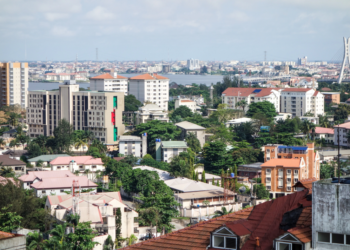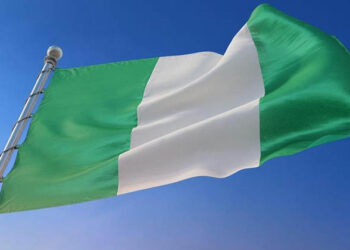The Central Bank recently introduced sweeping Foreign Exchange guidelines that is expected to eliminate or drastically reduce money laundering as we approach another election cycle. One of the changes announced was the replacement of the Wholesale Dutch Auction System (WDAS) with the Retail Dutch Auction System (RDAS) . In this blog post, I will attempt to differentiate between the WDAS and the RDAS.
What is a Dutch Auction System?
According to Investopedia A Dutch Auction System is
- A public offering auction structure in which the price of the offering is set after taking in all bids and determining the highest price at which the total offering can be sold. In this type of auction, investors place a bid for the amount they are willing to buy in terms of quantity and price.
A type of auction in which the price on an item is lowered until it gets a bid. The first bid made is the winning bid and results in a sale, assuming that the price is above the reserve price. This is in contrast to typical options, where the price rises as bidders compete.
To break it down further, for example, the CBN during its auction offers a total dollar sale of $200M. The apex bank offers foreign currency twice a week to keep the naira within a range of three percentage points above or below ₦155 per dollar. With this in mind Authorised Dealers who have various needs for dollars approach the auction for dollar purchase. Some may be willing to buy $20M, others $10M etc. So during the auction each Authorised dealer tables an offer that may be below the ₦155/$1 or above it depending on the forces of demand and supply. Therefore if there are more bids above the CBN’s preferred ₦155 those bidders get to buy dollars while those who bid below lose out and vice versa.
At the end of the Bid the CBN releases its results in its website. The last Bid for WDAS which took place on September 30 was announced as follows
SUMMARY OF WDAS NO 74/2013 OF 30TH SEPTEMBER, 2013
| Auction No | 9/30/2013 held on 74 |
| Total Amount Offered | US$ 300,000,000.00 |
| Total Amount Demanded | US$ 0.00 |
| Total Amount Sold | US$ 300,000,000.00 |
| Highest Successfull Bid Rate | US$ 155.78 |
| Lowest Bid Rate | 155.75 |
| No. of Successful | 17 |
| No. of Unsuccessful | 0 |
| Marginal Bid | US$ 155.75 |
| Number of Banks | 17 |
Private BDCs
- Each licensed BDC was required, to open a Naira Current Account with an Authorized Dealer of its choice, for the purpose of buying forex.
- A Bureau-de-Change is allowed to purchase forex from the CBN through a presentation of the CBN cheque issued by their banks twice a week (Tuesdays and Thursdays).
- The Bureau-de-Change purchase equivalent amount of forex from the CBN up to a maximum limit of US$200,000.00 twice a week.
Authorized Dealer BDCs
- The Authorized Dealer applies to CBN through the WDAS window on Mondays and Wednesdays for a maximum of US$2.0 million.
- The forex purchased by the Authorized Dealers is disbursed in cash and the BDCs in turn sell to end-users for eligible transactions only, such eligible transactions include:
- BTA at $5,000 per quarter and $20,000 per annum;
- PTA at $4,000 per quarter and $16,000 per annum; and others include:
- Mortgage monthly payment;
- School fees abroad;
- Medical fees abroad;
- Credit Card payment;
- Utility bills; and
- Life Assurance premium payment.
So What is the RDAS?
The RDAS is an acronym for the Retail Dutch Auction System and as the name implies is a direct sale of Forex by the CBN through the banks to the end users of the forex. Unlike the WDAS, the RDAS is based solely on actual demand of forex by the end users of the forex. As such, the Authorised dealers will only bid for forex based on the number of actual request it has received from its end users. For example, if an Authorised Dealer has received only $1million of confirmed dollar requests from its BDC’s and other end users it can only then bid for that $1million from the CBN auction unlike the WDAS where it can bid for more.
This is essentially Micro-managing??
Yes it is! The re-introduction of the RDAS is an effort by the CBN to micro-manage the sale and utilisation of forex in Nigeria.
Are there other essential differences between the RDAS and the WDAS?
Well, the CBN in their website differentates the two as follows;
- under the retail DAS, end-users were allowed to bid through their banks.
- under the WDAS, Authorised Dealer banks, bid on their accounts and the successful banks would then sell to their customers.
So what are the advantages of the RDAS?
The RDAS is basically a controlled form of forex transactions. By introducing this the CBN hopes to micro manage the sale and usage of forex. Some of the advantages are as follows
- Only confirmed users of forex for legitimate uses will have access to forex
- Round tripping is expected to be reduced as forex bought from the CBN is essentially monitored and can’t be used for reason other than those specified during bid application
- Banks will not be able to speculate in the interbank market as all banks will basically know that the dollars bought in any particular auction will be utilised fully before the next auction
- It will be difficult to sell forex bought from the CBN to the parallel market
Surely, the RDAS has some disadvantages too doesn’t it?
Well, we can start by looking at the advantages of the WDAS which is the reason why the CBN replaced the RDAS in 2006. However, there really isn’t many as the major difference between the two is that of control. If you therefore are against tight regulations then you will dislike the RDAS and vice versa.
But there is still one major disadvantage that the RDAS has which is that by virtue of its limited status it can create an artificial scarcity of forex. Because the CBN only sells forex to confirmed users other arbitrary users of forex will not be able to buy readily. For example, if you suddenly need to buy $10,000 cash for a transaction, you will have to buy only from a BDC who has that forex. Since, their activities are now heavily regulated it is likely that they may not have as they may have been expected to sell off their stock piles already.
This in turn fetes a parallel market. Therefore, it is likely that importers of forex like tourist or travellers will more than likely sell forex at higher rates to the black market than they would if they sell to the BDC.
Even the CBN acknowledges this point when they touted one of the major achievements of the WDAS. According to them “Sale of Foreign Exchange to Bureaux-de-Change operators in an effort to increase access of foreign exchange to small end-users, bridge the supply gap and develop the local Bureaux-de-Change (BDCs)“.
The New CBN guidelines re introducing the RDAS also introduced new guidelines. Their disadvantages or advantages depends on what side of the glass you are in. They are as follows;
- Authorised Dealers/Banks will no longer have substantial stock pile of dollars to meet the insatiable need of forex by customers
- The CBN will have to dedicate enormous resources towards micro managing the activities of the Authorised Dealers and the BDC’s
- Authorised Dealers and BDC’s will also have to fill huge amount of paper work brought thus increasing their operational cost
- Authorised Dealers will continue to sell dollars to the maximum of $250,000 per week to BDC’s. However, KYC forms of the BDC’s will need to be filed and updated regularly.
- Importer and Exporters of products and services who rely regularly on forex will now need to also dedicate time and resources to strict documentation processes.
- Increasing scrutiny in the application and usage of forex by all parties. The CBN scrutinises the Authorised Dealers who in-turn scrutinise the activities of the BDC’s and the End users etc.
- Debit/ Credit card transactions in forex has now been increased from $40,000 per annum to $150,000 per annum. This means if you are traveling you no longer need to buy forex from the black market. With your local debit cards you can go to any ATM abroad to withdraw forex at the prevailing exchange rate locally.
- Beneficiaries of Western Union and other money transfer networks can only now receive cash in Naira rather than in forex.
- Corporates who import dollars into the country through banks will now have to declare this import and reasons for brining it in. The forex imported will be converted to Naira immediately upon entry and a Certificate of Capital Importation (CCI) will be issued immediately. Before now, importers of forex need not apply for a CCI.
- Importers intending to pay for imports of non-regulated products of not more than $250,000 per annum using telegraphic transfers shall only complete the “e-Form M online” supported with a pro forma invoice. However, shipping documents must be submitted by the importer through its processing bank not later than 90 days from the date of the transfer.
Like I mentioned, a lot of these new developments may seem like an over kill or necessary depending on your informed perspective.


















The question is ; Do we necessarily need to introduce the RDAS in our present circumstance that the value of naira is dropping too fast.
We have devalued but no export products to win more F/X for the country. So a lot more challenges will rear their heads.
Unfortunately too, the only product {Oil}price{s} are low due to circumstances beyond our control.
The question above becomes more relevant when we know that this is an import oriented country. Consequently we are going to have or we have more F/X arbitrary buyers.This is not due to import oriented contry issue but as a result policies in duty payment, current election isuues and bmore. So the primary effect of more demand than supply will push up the price,beyond acceptable limits.
Thanks a lot! This was really helpful.